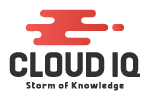Cisco Web Security Appliance
The Securing the Web with Cisco Web Security Appliance course shows you how to implement, use, and maintain Cisco Web Security Appliance (WSA), powered by Cisco Talos, to provide advanced protection for business email and control against web security threats. Through a combination of expert instruction and hands-on practice, you’ll learn how to deploy proxy services, use authentication, implement policies to control HTTPS traffic and access, implement use control settings and policies, use the solution’s anti-malware features, implement data security and data loss prevention, perform administration of Cisco WSA solution, and more.
Benefits
This class will help you:
- Implement Cisco WSA to secure web gateways, provide malware protection, and use policy controls to address the challenges of securing and controlling web traffic
- Gain valuable hands-on skills for high-demand responsibilities focused on web security
- Earn 16 CE credits toward recertification
Who should enroll
- Security architects
- System designers
- Network administrators
- Operations engineers
- Network managers, network or security technicians, and security engineers and managers responsible for web security
- Cisco integrators and partners
Prerequisites
To fully benefit from this course, you should have knowledge of these topics:
- TCP/IP services, including Domain Name System (DNS), Secure Shell (SSH), FTP, Simple Network Management Protocol (SNMP), HTTP, and HTTPS
- IP routing
You are expected to have one or more of the following basic technical competencies or equivalent knowledge:
- Cisco certification (CCENT certification or higher)
- Relevant industry certification [International Information System Security Certification Consortium ((ISC)2), Computing Technology Industry Association (CompTIA) Security+, International Council of Electronic Commerce Consultants (EC-Council), Global Information Assurance Certification (GIAC), ISACA]
- Cisco Networking Academy letter of completion (CCNA 1 and CCNA 2)
- Windows expertise: Microsoft [Microsoft Specialist, Microsoft Certified Solutions Associate (MCSA), Microsoft Certified Solutions Expert (MCSE)], CompTIA (A+, Network+, Server+)
Cisco learning offerings that contribute to recommended skills and knowledge:
Who should enroll
- Security architects
- System designers
- Network administrators
- Operations engineers
- Network managers, network or security technicians, and security engineers and managers responsible for web security
- Cisco integrators and partners
Prerequisites
To fully benefit from this course, you should have knowledge of these topics:
- TCP/IP services, including Domain Name System (DNS), Secure Shell (SSH), FTP, Simple Network Management Protocol (SNMP), HTTP, and HTTPS
- IP routing
You are expected to have one or more of the following basic technical competencies or equivalent knowledge:
- Cisco certification (CCENT certification or higher)
- Relevant industry certification [International Information System Security Certification Consortium ((ISC)2), Computing Technology Industry Association (CompTIA) Security+, International Council of Electronic Commerce Consultants (EC-Council), Global Information Assurance Certification (GIAC), ISACA]
- Cisco Networking Academy letter of completion (CCNA 1 and CCNA 2)
- Windows expertise: Microsoft [Microsoft Specialist, Microsoft Certified Solutions Associate (MCSA), Microsoft Certified Solutions Expert (MCSE)], CompTIA (A+, Network+, Server+)
Cisco learning offerings that contribute to recommended skills and knowledge:

